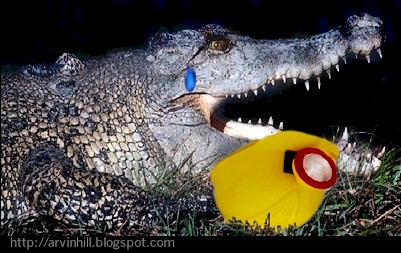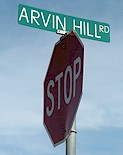Crocodile Tears
It's all too easy to grieve for the dead miners, their families and friends. But in typical American fashion, concern about those same miners - when they were alive - wasn't so forthcoming.

It's a safe assumption that many of the same people expressing grief and sympathy today would have been the first ones to fly into an apopolectic rage had those miners gone on strike to protest safety issues at the Sago Mine.
Mining has always been among the most dangerous jobs in the world and, yes, accidents happen. But those accidents cannot be attributed to fate or luck or The Big Man In The Sky. Accidents happen because safety costs money, a point not lost on state & federal regulators who maintain a cozy relationship with the companies and industries they are charged with monitoring.
With organized Labor on the wane and government at all levels firmly committed to enriching the corporate sector at the expense of public safety, the American public has no right to feign shock and grief when the next avoidable tragedy occurs.
__________________________________________
Now seems an appropriate time to revisit
16 Tons of Corporate Hubris (May 16, 2005).

The mine's federal health and safety violations had nearly doubled over the last year, rising from 68 citations in 2004 to 181 in 2005. Nearly half of the 2005 totals were deemed "significant and substantial," the government's term for serious mine safety problems. The deficiencies included problems with the firm's ventilation and roof support plans.
At least 46 federal violations had been cited since October. And records from the federal Mine Safety and Health Administration indicated that at least a dozen roof collapses occurred in the last six months.
In addition, Terry Farley, a West Virginia mine safety official, confirmed that the Sago Mine was also cited by state regulators for 208 violations in 2005, up from 74 the year before.
Mine safety experts said that the sudden rise in safety problems should have alarmed ICG when it was preparing to buy the mine.
"That's a significant number for a mine that size," said Kenneth P. Katen, a former deputy assistant Labor secretary for the mine agency under the Reagan administration. "If you have a sudden increase of violations, that's something that should have drawn the new owners' attention."
It's a safe assumption that many of the same people expressing grief and sympathy today would have been the first ones to fly into an apopolectic rage had those miners gone on strike to protest safety issues at the Sago Mine.
Mining has always been among the most dangerous jobs in the world and, yes, accidents happen. But those accidents cannot be attributed to fate or luck or The Big Man In The Sky. Accidents happen because safety costs money, a point not lost on state & federal regulators who maintain a cozy relationship with the companies and industries they are charged with monitoring.
With organized Labor on the wane and government at all levels firmly committed to enriching the corporate sector at the expense of public safety, the American public has no right to feign shock and grief when the next avoidable tragedy occurs.
__________________________________________
Now seems an appropriate time to revisit
16 Tons of Corporate Hubris (May 16, 2005).















<< Home